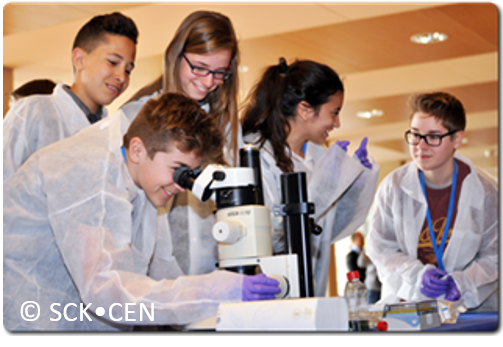Molecular scar tissue as potential incentive for epigenetic differentiation and memory in clonal bacterial populations

Category
Ph D Defense
Date
2020-11-30 17:00
Venue
ONLINE verdediging
Promovendus/a: Julien Mortier
Promotor(en): Prof. dr. ir. Abram Aertsen
Bacteria typically divide symmetrically to produce two genetically identical and morphologically indistinguishable daughter cells. However, it is becoming clear that these bacterial siblings can have their own individual phenotypes irrespective of environmental conditions to allow the development of intricate social behavior. This phenomenon is called phenotypic heterogeneity and the precise array of possible underlying mechanisms remains unclear. In this dissertation, we elaborate on recent findings from our group that harboring a protein aggregate (PA) can deterministically influence cellular behavior between PA-bearing and PA-free cells. PAs can be formed by the aggregation of proteins after certain stressful exposures and as such can serve as molecular memory elements (i.e. "molecular scar tissue") that persists after the initial stressful event has subsided.In this dissertation, we first present a novel high-throughput screening methodology to find promoters that display intricate expression patterns in the spore-forming Gram-positive model organism Bacillus subtilis, which led to the discovery of multiple genes previously unknown to be heterogeneously expressed. We also developed a PA model system to explore the phenotypic consequences of PAs in this organism. As such, we found a remarkable robustness of the sporulation and germination processes against perturbation by these molecular structures.
In a subsequent part, we reveal how PAs in Escherichia coli confer increased cellular robustness against proteotoxic stresses, such as exposure to heat, peroxide, and the antibiotic streptomycin, both in terms of increased survival frequencies and decreased resuscitation times, but not to a DNA damaging stress such as UV exposure. These results further highlight that PAs can serve as long-term memory elements that drive phenotypic heterogeneity in stressed clonal populations.
Lastly, we uncovered a novel evolutionary route by which bacteria can adaptively tune their heat resistance. In fact, we found that seemingly random single mutations in the E. coli tnaA gene can confer significant heat resistance through the creation of folding-deficient and aggregation-prone TnaA variants. More generally, these findings importantly imply that even mutations with disruptive effects on protein structure and functionality can still yield true gain-of-function alleles with a selective advantage in adaptive evolution.
All Dates
- 2020-11-30 17:00
Powered by iCagenda





